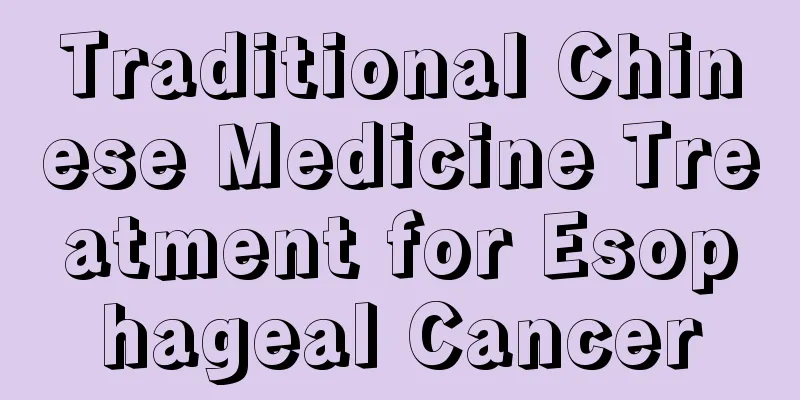Traditional Chinese Medicine Treatment for Esophageal Cancer

|
In the conclusion of the treatment of dysphagia in the book "Miscellaneous Explanations and New Meanings of Treatment" compiled by Hu Guangci, it is pointed out that "medical books before the Song Dynasty all believed that the disease was caused by the seven emotions and worries, so the main treatment was to harmonize qi and blood. Later doctors blamed it on qi and blood deficiency and dryness of body fluids, so it is advisable to replenish qi and blood, nourish blood and moisten dryness. For phlegm accumulation, it is advisable to clear phlegm and disperse the accumulation, and for blood accumulation, it is advisable to nourish blood and break up blood stasis." From this, we can see the general picture of the ancients' treatment of dysphagia, and it also inspires us that doctors of all dynasties have continuously revised, supplemented and developed the treatment methods of this disease in medical practice. By studying the research results of many doctors of all dynasties and combining clinical practice, we have found that the root cause of the pathogenesis of this disease is weak yang qi and decreased body function. The treatment should be warming yang and replenishing qi, supporting positive qi and improving body function, so the main treatment prescription should reflect this principle of traditional Chinese medicine treatment. Main prescription for esophageal cancer: 6g ginseng, 15g astragalus, 20g cinnamon twig, 15g Jianbai, 30-60g roasted aconite (pre-decocted), 15g Ligustrum lucidum, 20g Millettia reticulata, 12g Chinese angelica, 20g northern bean root, and 10g chicken gizzard lining. Treatment based on syndrome differentiation: There are different types of esophageal cancer, and the prescriptions and medications vary accordingly. However, the treatment methods are always to soothe the liver and regulate qi, reduce adverse reactions and resolve blood stasis, activate blood circulation and resolve blood stasis, soften and disperse nodules, strengthen the body, promote the production of body fluids and moisten dryness, clear away heat and detoxify, fight cancer and relieve pain, and warm the yang and invigorate qi. |
<<: Pathological classification of esophageal cancer
>>: Clinical manifestations of prostate cancer
Recommend
What are the possible causes of left abdominal pain in men?
Men often experience pain on the left side of the...
Can hydrogen peroxide be used to clean ears?
Hydrogen peroxide is a disinfectant commonly used...
Does Black Ancient Vine Longevity Tea have any side effects?
Tea is a relatively healthy drink, and many peopl...
The relationship between pulmonary neuroendocrine carcinoma and small cell lung cancer
Neuroendocrine lung cancer and small cell lung ca...
How long can you live with mid-stage laryngeal cancer
It is not yet certain how long laryngeal cancer c...
Why do people age?
Many people may not understand why we age after r...
Six codes your nose tells you
Nose size: The size of your nose has a lot to do ...
How long can a person with rectal cancer usually live
The condition of rectal cancer will directly affe...
Surgery is the first choice for liver cancer treatment
The general principle of liver cancer treatment i...
What is the black spot that suddenly grew on my finger
If black spots suddenly appear on your fingers, i...
How long can expressed breast milk be kept and how should it be stored
Because they need to go to work, breastfeeding mo...
Should I remove all or retain kidney cancer if it is 7 cm?
Should a 7 cm kidney cancer be completely removed...
Never pour this kind of water upside down
With the change of lifestyle, people spend more a...
Does the skin get bruised easily when bumped?
In daily life, bumps and bruises are a common phe...
How to choose an authoritative hospital for esophageal cancer
The relevant selection criteria of esophageal can...









